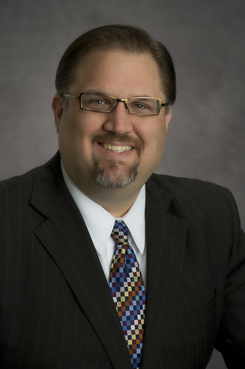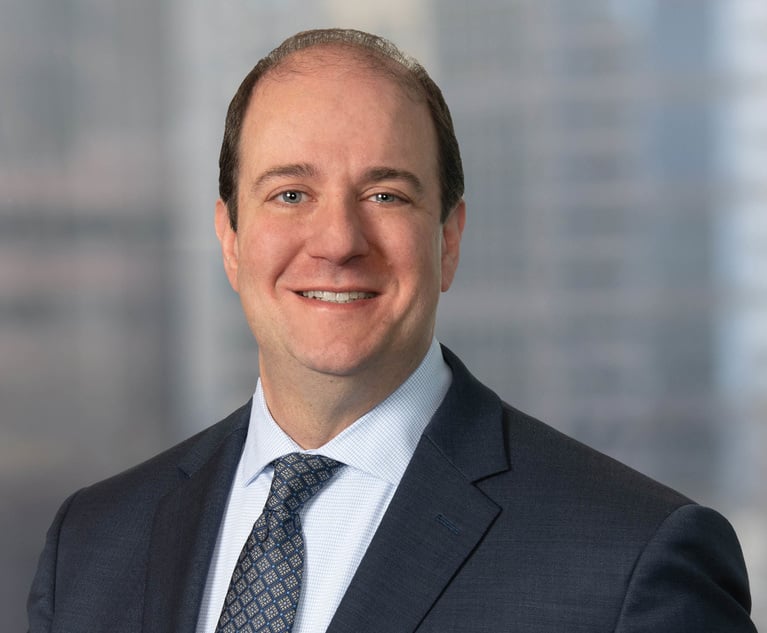Advising Life Sciences Clients on Private Equity
If you represent early stage life sciences companies entering the capital markets, you may be asked to opine on the financing and business issues they face. Below is a general overview of some of the issues that you will need to understand to provide solid advice.
February 19, 2019 at 02:22 PM
9 minute read
 Christopher Ezold of Ezold Law Firm.
Christopher Ezold of Ezold Law Firm.
Life sciences/biotech companies are a significant economic driver in the greater Philadelphia area, with an estimated 1,200 businesses employing nearly 50,000 people in 2017, according to the Greater Philadelphia Life Sciences Report, 2017. In my experience, there is significant growth within the early stage life sciences sector; most will need to seek capital to grow to an inflection point. Much financing is through angel investors; what used to be a purely venture capital space has opened up to professional angels, primarily through investment groups such as The Keiretsu Forum, the Mid-Atlantic Bio Angels and others.
If you represent early stage life sciences companies entering the capital markets, you may be asked to opine on the financing and business issues they face. Below is a general overview of some of the issues that you will need to understand to provide solid advice.
Legal issues
There are two major types of legal issues involved—financing and investment issues governed primarily by the Securities and Exchange Act of 1934 and “due diligence” issues.
- Financing Issues
If your client is approaching the private equity market, they must determine whether and how they are soliciting under 17 CFR Section 230.506 (Rule 506). Rule 506(b) allows a company to offer securities to accredited investors (i.e., persons with sufficient knowledge and experience to evaluate an investment, and financial resources to absorb a bad investment) but not to make a general solicitation or advertising. Rule 506(c) allows a company to make a general solicitation, but puts the burden on the company to verify that the investors are “accredited investors.” If your client is soliciting under 506(b), ensure that they make no public solicitations—a strong conversation about social media controls is warranted. If your client is soliciting under 506(c), ensure that prior to any solicitation they have a process in place to document their compliance with the act's requirements that they verify “accredited investor” status.
Securities offered pursuant to Rule 506 do not have to be registered with the SEC; however, the company must submit a Form D to the SEC, as well as required state filings. Furthermore, securities offered pursuant to Rule 506 must meet the requirements of 17 CFR Section 230.501 and Section 230.502 regarding information provided to prospective investors and limitations on resale of the securities. Preparing the Form D and compliant information packets before any offering will help focus the client on its obligations moving forward.
The private equity marketplace is not the 'wild west' that it once was; however, it is not yet an open marketplace. Ensure your client is aware that paying a third party for generating financing—whether in cash, equity or otherwise—is forbidden unless the third party is a registered broker-dealer. An error here can cause the unwinding of the financing, plus damages—and your client will never recover the money they paid the unregistered broker.
It is easy for a hungry startup to lose focus on the legal requirements when badly needed capital is dangled in front of it; this means you will have to walk a fine line between providing good advice and frustrating the client. Communication skills are key, here.
- Due Diligence Issues
Due diligence issues are legal matters to clean up before your client goes to the private equity markets. Make clear that waiting to resolve these issues at the demand of an investor during due diligence threatens the investment and provides leverage to the investor to demand better terms.
Companies want to protect their secrets; many will demand investors sign nondisclosure agreements (NDAs). As a practical matter, this is problematic; the power rests in the hands of the investor, and they generally will not sign NDAs at all—or if so, only in very limited circumstances. Consider advising your client to limit information provided, and only demand narrowly tailored NDAs.
The corporate form should be cleaned up prior to offering. S Corporations are good tax vehicles, but terrible investment vehicles for many reasons. There is generally no need for an angel-funded company to be a C Corporation. LLCs are flexible and easy to administer; more importantly, angels are comfortable with them. Regardless of the form chosen, ensure that the fees and taxes are paid and filed, and any loose ends—undocumented equity transfers, verbal option promises, leadership changes, etc.—have been appropriately documented. A frequent area of poor documentation is founder equity, employee incentives and the effect of dilution and splits on initial investors. It is critical to ensure that the cap table is accurate and has supporting documentation.
Angels want to understand how the company's intellectual property is protected; ensure that confidentiality agreements with employees, vendors and third parties exist, trade secrets are protected by sufficient policies (which are actually enforced), competent IP counsel is handling patents and trademarks, and a schedule of all IP and its protections is reviewed by the team prior to offering.
The team is frequently the most important part of the investment to an angel. Noncompetition agreements are critical to ensure the team doesn't undermine the company or the investment sought. Ensure these are in place, enforceable and executed.
A startup's initial client and critical vendor contracts tend to be haphazard; ensure any major holes in these contracts are addressed prior to due diligence, and that new, professional forms of contract are in place for subsequent use.
Business issues
Your client may want advice on its pitch to angel investors. Make clear that they are not selling their product or service—they are selling an investment opportunity and must plan their pitch accordingly. Pitches should be short, no more than fifteen minutes; pitch decks should be clear and uncomplicated. Detail can be discussed in due diligence. I have found video to be a great hook; however, video should be no more than one to two minutes long. Simplicity and clarity are important—but they magnify errors or typos, so these must be avoided at all costs. No fact or statement should be presented that cannot be supported. The presenter should be the CEO; angels will want to see the company's leadership in action at the pitch. The pitch should be rehearsed repeatedly; it should also be adjusted for the audience to tell the story to the audience that it wants to hear (i.e., if presenting a medical device to an audience with doctors and industry insiders, prepare to discuss science and regulatory pathway; if presenting to a primarily business-oriented audience, prepare to discuss marketing and client acquisition).
When presenting, the issues angels generally want addressed are:
- The Problem: What is the problem being solved, the solution, why is that solution different from current solutions, and what is the market opportunity. Pitches for apps in life sciences are multiplying; if your client has an app, show how it will stand out.
- The Team: Frequently the most important part of the presentation—angels know a good team and a bad product can be successful, while a mediocre team and a good product will not. Has the executive team lead a startup to exit successfully, what is their industry experience, what is their subject matter experience, and what is the makeup of the advisory team? With any pharmaceutical or medical device, angels will want to see a team member with a significant regulatory background.
- Barriers to Entry: Especially in life sciences, this means patents. A freedom to operate letter from a patent attorney is extremely valuable here. If the company cannot patent or otherwise protect its product or service, admit that this is a first move' land-grab opportunity—but show how the company will secure this opportunity.
- Traction: Many life sciences startups cannot show market traction; they will be entering the private equity market before or during FDA testing. Showing traction among potential customers (hospitals, physicians, etc.), subject matter experts and the FDA's own responses is a necessary substitute.
- Regulatory Pathway/Reimbursement: How will your product get through FDA testing, and how will you achieve reimbursement from federal and private payors? Setting forth milestones is critical.
- Use of Funds: How is the company going to use the funds raised; this should fit into the path to market and be supported by clear calculations.
- Synergies: Most life sciences companies are able to generate valuable consumer and industry data; how will this be used, protected and monetized? Will there be additional uses/indications for the product or service developed, and is the company planning for this?
- Exit: What is the timeframe for exit—what is the inflection point that will generate returns for the investors, and when will they get their money back? What is the anticipated rate of return, what comparator transactions support this conclusion, who are the potential acquirers of the company, and have there been any discussions so far?
Conclusion
This process is what makes emerging growth companies in the life sciences industry exciting clients to have; you are able to become part of the team, help grow a small client into a large client, and assist with both legal and business issues. We are fortunate in the Greater Philadelphia/Mid-Atlantic region to be in an epicenter of growth for these clients.
Christopher Ezold is the managing partner of the business and health law group of The Ezold Law Firm in Bala Cynwyd. He is also EVP for strategy and general counsel for health tech firm Forerunner Holdings and a sponsor of the Mid-Atlantic Region of The Keiretsu Forum, the world's largest angel investment group.
This content has been archived. It is available through our partners, LexisNexis® and Bloomberg Law.
To view this content, please continue to their sites.
Not a Lexis Subscriber?
Subscribe Now
Not a Bloomberg Law Subscriber?
Subscribe Now
NOT FOR REPRINT
© 2025 ALM Global, LLC, All Rights Reserved. Request academic re-use from www.copyright.com. All other uses, submit a request to [email protected]. For more information visit Asset & Logo Licensing.
You Might Like
View All

Trending Stories
Who Got The Work
J. Brugh Lower of Gibbons has entered an appearance for industrial equipment supplier Devco Corporation in a pending trademark infringement lawsuit. The suit, accusing the defendant of selling knock-off Graco products, was filed Dec. 18 in New Jersey District Court by Rivkin Radler on behalf of Graco Inc. and Graco Minnesota. The case, assigned to U.S. District Judge Zahid N. Quraishi, is 3:24-cv-11294, Graco Inc. et al v. Devco Corporation.
Who Got The Work
Rebecca Maller-Stein and Kent A. Yalowitz of Arnold & Porter Kaye Scholer have entered their appearances for Hanaco Venture Capital and its executives, Lior Prosor and David Frankel, in a pending securities lawsuit. The action, filed on Dec. 24 in New York Southern District Court by Zell, Aron & Co. on behalf of Goldeneye Advisors, accuses the defendants of negligently and fraudulently managing the plaintiff's $1 million investment. The case, assigned to U.S. District Judge Vernon S. Broderick, is 1:24-cv-09918, Goldeneye Advisors, LLC v. Hanaco Venture Capital, Ltd. et al.
Who Got The Work
Attorneys from A&O Shearman has stepped in as defense counsel for Toronto-Dominion Bank and other defendants in a pending securities class action. The suit, filed Dec. 11 in New York Southern District Court by Bleichmar Fonti & Auld, accuses the defendants of concealing the bank's 'pervasive' deficiencies in regards to its compliance with the Bank Secrecy Act and the quality of its anti-money laundering controls. The case, assigned to U.S. District Judge Arun Subramanian, is 1:24-cv-09445, Gonzalez v. The Toronto-Dominion Bank et al.
Who Got The Work
Crown Castle International, a Pennsylvania company providing shared communications infrastructure, has turned to Luke D. Wolf of Gordon Rees Scully Mansukhani to fend off a pending breach-of-contract lawsuit. The court action, filed Nov. 25 in Michigan Eastern District Court by Hooper Hathaway PC on behalf of The Town Residences LLC, accuses Crown Castle of failing to transfer approximately $30,000 in utility payments from T-Mobile in breach of a roof-top lease and assignment agreement. The case, assigned to U.S. District Judge Susan K. Declercq, is 2:24-cv-13131, The Town Residences LLC v. T-Mobile US, Inc. et al.
Who Got The Work
Wilfred P. Coronato and Daniel M. Schwartz of McCarter & English have stepped in as defense counsel to Electrolux Home Products Inc. in a pending product liability lawsuit. The court action, filed Nov. 26 in New York Eastern District Court by Poulos Lopiccolo PC and Nagel Rice LLP on behalf of David Stern, alleges that the defendant's refrigerators’ drawers and shelving repeatedly break and fall apart within months after purchase. The case, assigned to U.S. District Judge Joan M. Azrack, is 2:24-cv-08204, Stern v. Electrolux Home Products, Inc.







